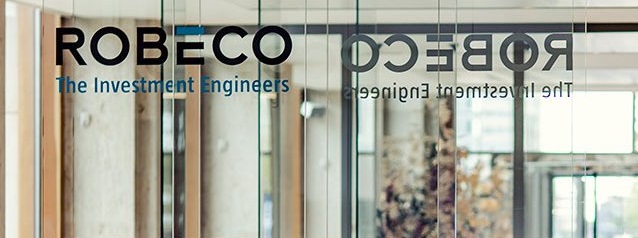Robeco Survey: Major Increase in Climate Focus for Investors
International asset manager Robeco announced today the results of its 2021 Global Climate Survey, outlining how investors are addressing the risks and opportunities created by climate change. The survey revealed a significant increase in investor interest and action on climate change, while also highlighting knowledge gaps and investor perceptions of the obstacles to low carbon investing.
Robeco commissioned the survey, which was carried out by CoreData Research in January 2021. For the study, CoreData surveyed 300 institutional and wholesale investors in Europe, North America and Asia Pacific, representing over $23 trillion in assets under management.
According to the results of the survey, 86% of investors reported that climate change will be at the centre of their investment policy, or will be a significant factor in it, in the next two years, marking a major change from only 33% two years ago.
The survey also indicated that interest in net zero investing policies may see significant growth in the next few years. While only 17% of respondents reported having set a net zero target, more than half expect to do so over the next five years. Similarly, divesting from carbon-intensive assets is expected to become increasingly common, with institutional investors expecting decarbonization-related divestments as a percent of their portfolios to reach 19% over the next five years, compared to only 6% over the past 5 years.
Christoph von Reiche, Head of Global Distribution & Marketing at Robeco, said:
“This survey shows that investors are committed to tackling climate change. The climate will become mainstream in our industry, with all assets being aligned with the net zero ambition at some point in the coming years. The message is clear: investors have a keen interest in the climate and strong desire to work on decarbonization.”
Other key findings from the survey:
- Investor confidence: 69% of respondents believe that the Paris agreement target on global warming is achievable with major global economic and social changes, but 80% believe governments and others need to do much more to achieve it.
- Climate change opportunities: Investors identified 3 primary decarbonization drivers as most relevant to their organisation’s investment approach, including increased use of renewables, bioenergy and hydrogen for power and fuel (86%), switching transportation to low or zero carbon transport (58%), and replacing fossil fuels in industrial processes (56%). Within renewable energies, Wind Power was most often identified as the sector offering the best investment opportunities.
- Knowledge gaps: When asked to report their most significant gaps in knowledge and understanding of climate change and decarbonization, 45% identified understanding the difference between greening financial assets and greening the real economy, while 45% also said it was the investment opportunities resulting from companies/sectors that will benefit from climate change and the transition to a low carbon economy. 39% identified regulatory risks posed by climate change to investor portfolios.
- Obstacles: In terms of identifying obstacles to implementing decarbonization in investment portfolios, lack of data, reporting and ratings was the most commonly cited (44%), followed by having to meet internal targets on risk and return (40%), and a lack of internal capacity and resources (39%).
Gilbert Van Hassel, CEO Robeco, said:
“Moving to a low-carbon economy needs a global effort, with governments, regulators, the corporate sector and individuals all playing their part. This survey shows that the vast majority of investors are committed to tackling climate change, which is a promising sign. Yet it has also revealed a substantial knowledge gap when it comes to fully understanding these major issues, with many investors not knowing where to start or how to make a difference. The time to act really is now. As a global leader in sustainable investing, we see it as our duty to share our passion and expertise with those who have yet to fully embrace it, so that together we can rise to one of the greatest challenges facing humanity: the climate crisis.”





